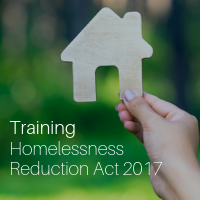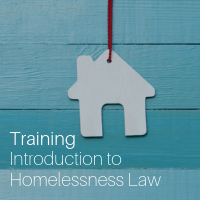Rise in Temporary Accommodation on Anniversary of Homelessness Reduction Act
(Survey of councils by the LGA)
In April 2018, the country saw the introduction of the Homelessness Reduction Act. This new legislation placed new duties on local government to get people into permanent housing.
But, a year on, recent figures show that there are now greater numbers of people being placed into temporary and emergency accommodation that before the Homelessness Reduction Act came into force.
Following a survey of councils by the LGA, figures show that homelessness is still on the rise.
Households in temporary accommodation are now 70 per cent higher than in 2010. And since 2017, local authorities have been housing more than 200,000 households of adults and children in temporary accommodation. This includes hostels, bed and breakfasts, and private rented accommodation.
The LGA survey found:
- 80% of councils have seen an increase in homelessness presentations since the introduction of the Act.
- 60% of councils saw the number of people being housed in temporary and emergency accommodation increase.
- 60% of councils say the length of time people spend in temporary and emergency accommodation has increased.
- 91% of councils say limited access to affordable housing and a lack of suitable accommodation for people already sleeping rough is a serious concern.
- Councils across the country say excessive levels of paperwork required by the Act are decreasing effectiveness through high time and administration costs.
- Councils are determined to prevent homelessness from happening in the first place.
LGA housing spokesman Cllr Martin Tett, said:
“Behind every instance of homelessness lies an individual tragedy. Councils are determined to prevent it from happening and support homeless people in their communities into accommodation as quickly and as effectively as possible.
“Many councils have updated their homelessness prevention strategies since the Act was introduced last year. But a lack of affordable housing has left many struggling to cope with rising number of people coming to them for help. This means having to place more families and households into temporary and emergency accommodation as a result.
“This is bad for families and communities, expensive for councils and not the aim of the Act.
“The wider factors that are increasing homelessness also need to be addressed if the Act is to be a success. Councils need to keep 100 per cent of Right to Buy sales receipts to replace homes sold; and to adapt welfare reforms to protect families at risk of homelessness and prevent homelessness from happening in the first place.”
More about the survey
The LGA conducted this survey of councils to gather information on their experience of the Homelessness Reduction Act (HRA) since its implementation. The purpose was to enable the LGA to understand how well the Act is working on the ground, and the areas where councils might be experiencing issues in relation to its implementation. A total of 151 councils responded.
A report available from the LGA on request.
Improve your grasp of local government homelessness law.
escalla offer specialist training for the Homelessness Reduction Act 2017, as well as an Introduction to Homelessness Law.



